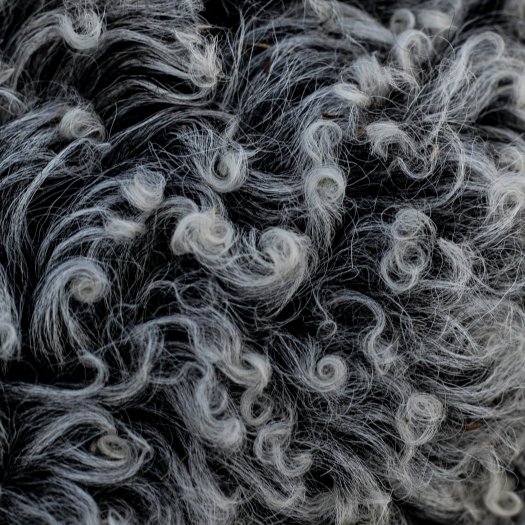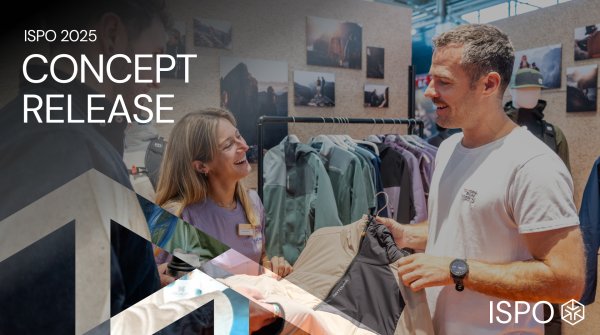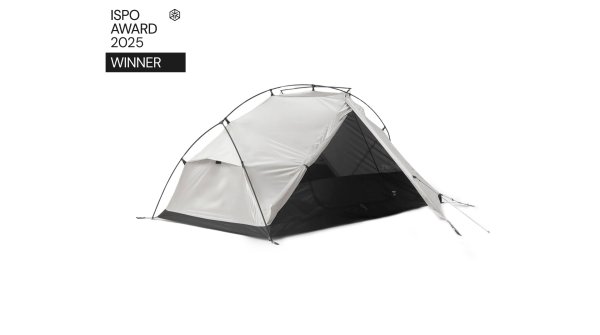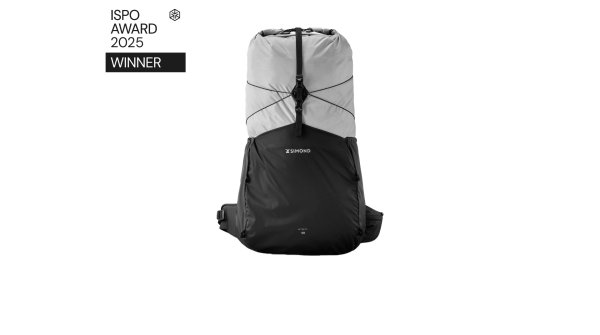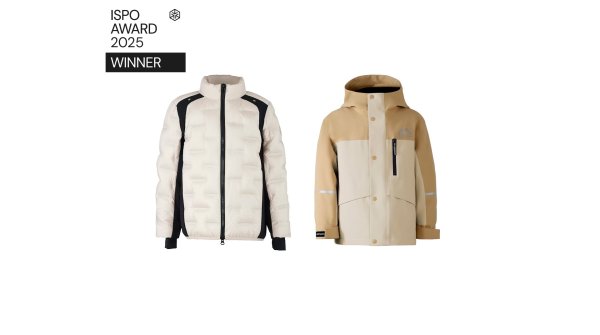Bio-based materials and natural fibers are critical to the future of sustainable fashion and industry, as they offer a solution to reduce environmental impact and align with global climate goals. The fashion industry, responsible for a significant portion of global emissions, must reduce its greenhouse gas output by 45% by 2030. With raw materials accounting for up to two-thirds of a brand’s climate impact, transitioning to more sustainable options like natural fibers from regenerative farming practices or bio-based solutions is vital for regulatory compliance and long-term profitability.
Natural fibers such as cotton, wool, hemp, and flax have long supported human needs but were largely overshadowed by synthetic fibers like polyester and elastane during the last century. However, today's advancements in textile technology and sustainability concerns are driving renewed interest in these bio-based materials and natural fibers, which not only meet performance standards but also support ecological health when managed responsibly. By embracing these fibers, brands can reduce emissions, secure a future supply of materials, and stay competitive amid intensifying environmental regulations.
A sustainable approach, however, requires that natural materials be cultivated and processed with attention to biodiversity, soil health, and full biodegradability. When managed properly, these fibers can reintegrate into the environment, enriching the soil rather than degrading it. The shift to “preferred fibers” including bio-based materials is crucial not only for meeting upcoming regulations but also for ensuring the industry's long-term viability in a world that increasingly demands ecological responsibility. (2,3)
At ISPO Munich’s Sustainability Hub, a variety of forward-thinking solutions were presented. From wool sourced from regenerative farms to plant-based alternatives ready to replace fossil-based materials, these innovations demonstrate the exciting potential of natural fibers and bio-based materials to shape a sustainable future – where performance and nature work hand in hand.
ZQ and ZQRX are pioneering frameworks for ethical and regenerative wool production, focused on creating measurable positive impacts. Launched in 2007, New Zealand-based ZQ became the first global standard for responsible wool, setting high benchmarks for animal welfare, environmental sustainability, fiber quality, traceability, and social responsibility. In 2020, ZQRX introduced a continuous improvement model based on regenerative agriculture. The ZQRX Index tracks progress across 15 indicators, covering environmental, animal welfare, and social factors. ZQRX growers enhance soil health, foster biodiversity, and manage water sustainably, contributing to emissions reductions and supporting local communities.

Südwolle Group and ZQRX share a commitment to a regenerative future, creating meaningful collective impact. The ZQRX wool sourcing program leads a significant shift in sourcing, emphasizing regenerative farming for positive social, animal, and environmental outcomes. Südwolle Group is one of the leading suppliers of worsted yarns. Bluesky ZQRX 100% Merino Yarn is a product of meticulous Life Cycle Assessment (LCA) and the dedication of selected growers from cradle to gate, demonstrating its availability of bespoke programs tailored to brand needs. The ZQRX program takes a holistic view with the collective aim to foster a healthier planet for generations to come.
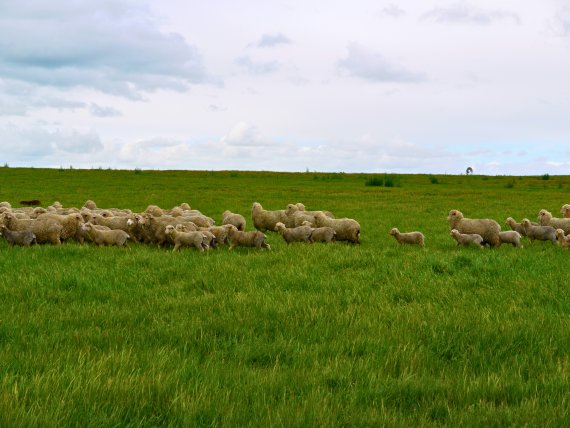
Evoco is a global innovation company dedicated to replacing unsustainable, fossil fuel-based materials with high-performance, plant-based alternatives. Its technology platform offers scalable chemistry and material solutions to help industries reduce their environmental impact by detoxifying and decarbonizing their products. Evoco’s innovations include Bio-Foams, Bio-Leathers, and Bio-TPU, primarily focused on the footwear industry. With 14 patents granted and operations in China, Vietnam, and Italy, the company is expanding into new markets and product categories, driving sustainable change across multiple sectors.
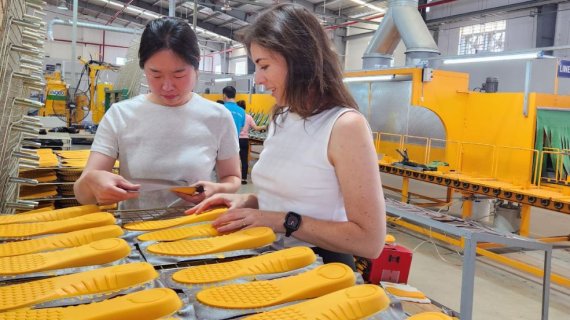
Biotexfuture is an innovation space funded by the German Federal Ministry of Education and Research (BMBF) under the National Research Strategy Bioeconomy 2030. It´s vision is to convert the textile value chain from petroleum-based to bio-based and to create this change together with like-minded partners. The innovation space focuses on developing sustainable raw materials, improving textile processes, and promoting circular economy practices. On the research side, the Institute of Textile Technology, is responsible together with the Chair of Technology and Organisational Sociology (STO), both RWTH Aachen University. For the industry, this part is taken over by the sporting goods company adidas AG.

With the plastic market set to triple, recycling alone won't solve the issue. Developing regenerative materials is the main innovation of the next generation of materials. Bio-based solutions are key to reducing fossil fuel dependence and emissions. Gecko Components bridges the gap to large-scale production, enhancing technologies from start-ups and making them viable for industrial use, supporting them in their material development but is also actively shaping the future of bio-based materials. By co-developing with the start-up, the company ensures materials are competitive, scalable, and driving the transition to sustainable, mass-market solutions that address today's environmental challenges.

As part of the "Future Now" initiative, this project explores the often-overlooked concept of designing with the future in mind. While many brands focus on reducing impacts after a product's creation, few truly consider the product's end of life. This collaboration between Templa, certified B-Corp manufacturer Active Apparel Group and ALLIED Feather + Down demonstrates the potential to design a fully biodegradable collection. Featuring 800+ fill power recycled down and biodegradable trims and fabrics, the collection aims to achieve high performance and luxury, while leaving no waste behind.

Ski waxes and chain oils are directly loaded into nature during use. To avoid negative impacts, Nzero develops biological waxes and lubricants that do not come from fossil raw materials. Care is taken to ensure that all components are biodegradable and can be naturally absorbed by the environment without harming soil life. Ski waxes such as Nzero’s Solid Range has 100 % natural-based raw materials and Nzero & Bike Wet Lube over 85 % (+). These are biodegradable by nature and do not cause harm to the environment. Nzero constantly search for components and ingredients that can enhance the functionality and effectiveness of their formulas.

References:
- https://www.bcg.com/publications/2023/driving-profitability-with-raw-materials-in-fashion
- Geyer, R., Jambeck, J. R., & Law, K. L. (2017). Production, use, and fate of all plastics ever made. Science Advances, 3(7), e1700782.
- Steffen, W., Richardson, K., Rockström, J., et al. (2015). Planetary boundaries: Guiding human development on a changing planet. Science, 347(6223), 1259855.
- ISPO awards
- Mountain sports
- Bike
- Design
- Retail
- Fitness
- Health
- ISPO Job Market
- ISPO Munich
- ISPO Shanghai
- Running
- Brands
- Sustainability
- Olympia
- OutDoor
- Promotion
- Sports Business
- ISPO Textrends
- Triathlon
- Water sports
- Winter sports
- eSports
- SportsTech
- OutDoor by ISPO
- Heroes
- Transformation
- Sport Fashion
- Urban Culture
- Challenges of a CEO
- Trade fairs
- Sports
- Find the Balance
- Product reviews
- Newsletter Exclusive Area
- Magazine
